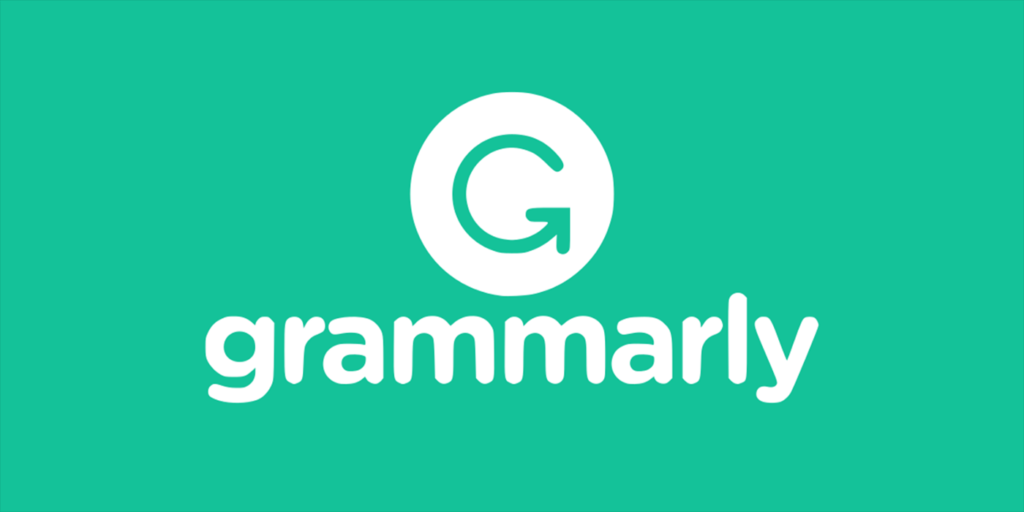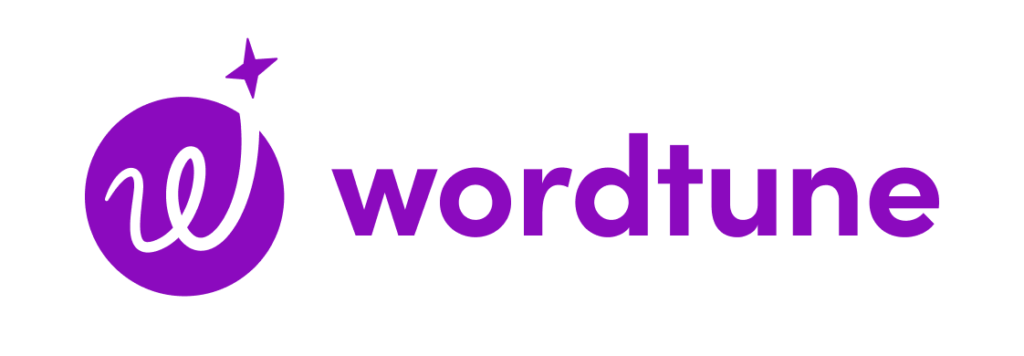Can’t seem to decide whether Grammarly or Wordtune is right for you? This comprehensive comparison will make the decision easier.
I have been using Grammarly since its launch in 2011. As a result, I’m a first-hand witness to its evolution from a basic grammar checker to a full-fledged AI writing companion.
While my bond with Wordtune isn’t that strong – I only started using it in 2018. I’m pretty confident that my knowledge of this writing tool dwarfs that of most of its users.
Thus, if you’re searching for a well-informed and comprehensive Grammarly vs. Wordtune comparison, sit tight and read this article to the end.
Our rating:
- Grammarly: 4.5/5
- Wordtune: 4.5/5
| Criteria | Grammarly | Wordtune |
| Ease of Use | User-friendly interface | Incredibly easy to use |
| Customization | Offers a large number of customization options | Fewer customization options vis-a-vis Grammarly |
| Analysis Reports | Provides basic analysis reports for grammar, punctuation, spelling, engagement, clarity, and more. | N/A |
| Rephrasing Tools | Allows you to rephrase your writing pretty much any way you want (especially if you opt for GrammarlyGO) | Ditto |
| Integrations | Integrates with almost every app a writer could use | No app for Android devices |
| Pricing and Support | Prices aren’t cheap but won’t blow a hole in your pocket either | Costs more vis-a-vis Grammarly |
| Accuracy | Highly accurate in identifying and correcting grammar, punctuation, and spelling errors. | Mostly accurate |
| Writing Style | Lets you pick from predefined writing styles | Lets you pick from formal and informal writing style |
| Plagiarism Checker | There are better (and more reliable) options out there | Not available |
| Mobile Integration | Yes | Yes |
| Educational Material | I am yet to come across any | Paid plan includes additional grammar refinements, style suggestions, and vocabulary improvements. |
| User Reviews | Routinely gets 4.5* out of 5 | Routinely gets 4.6* out of 5 |
| Free vs Paid Plans | Free plan: No restrictions and includes tone detection Paid Plan: Includes a plagiarism checker | Same |
| Writing Goals | Lets you set your writing goals in advance as well as change them down the line | Allows you to give it prompts to set writing goals in advance |
| Language Support | Only English | Writing and Editing: Only English Translation: 10+ languages |
Table of Contents
Overview: What both tools are about?

Grammarly is an AI-powered writing tool most famous for its ability to point out and correct grammatical errors and spelling mistakes.
Additionally, it suggests better word choices, rephrases entire passages and gives suggestions to improve the clarity of your writing.
You can also count on Grammarly to tailor your writing by:
- Target audience (general, knowledgeable, expert),
- Formality (formal, informal, neutral),
- Domain (general, business, academic, technical, casual, and creative)
A built-in plagiarism checker is another of Grammarly’s most popular tools, though I have valid reasons to doubt its accuracy (more on this later).

Wordtune is also powered by artificial intelligence like Grammarly, but that’s where the similarities between both tools end.
Unlike Grammarly, Wordtune isn’t going to identify and fix spelling errors and grammatical mistakes in your writing.
Instead, it will help you write articles from scratch (using pre-generated and real-time prompts) as well as rephrase passages that it deems too wordy for the readers.
On top of that, Wordtune offers a summarizer, a feature that summarizes key points in long documents and articles.
Ease of Use: How user-friendly are the interfaces of each product?
Both these writing tools are easy to use, even for users who have never used them before.
Take Grammarly, for instance.
Despite having options for almost everything related to your writing (such as grammar, style, clarity, delivery, and more), Grammarly’s interface is as uncluttered as anyone could hope.
A snapshot taken from Grammarly’s MS Word plug-in offers proof:

Fortunately, Grammarly’s web editor has an equally user-friendly interface:

Wordtune also has a clear and concise user interface.
If you prefer using the web-based Wordtune editor, things get even simpler.
All you’d have to do is to head over to its website or the desktop app, paste your content, then click on the Wordtune icon, and then you’ll see all the suggestions neatly in the middle of your screen.
Here’s an example:

Thus, as far as their respective user interfaces are concerned, there isn’t much to separate Grammarly and Wordtune.
Customization: How customizable are the settings and options for each product?
One of the things I like the most about Grammarly is that it offers a wealth of customization options.
For example, you can create a personal dictionary, adhere to a consistent style of abbreviations, use vivid words, avoid passive voice, and do much more.

That’s not the best part.
Grammarly also lets you get tailored writing suggestions based on domain, intent, formality level, and target audience:

Wordtune doesn’t offer as many customization options.
While you can customize this tool to fit your preference by selecting different styles, such as casual or professional, that is as far as it can go.
Unlike Grammarly, it doesn’t offer the option of creating a personal dictionary. Neither can it tailor its responses to specific audiences, such as general, knowledgeable, or expert.
Analysis Reports: What types of reports does each product offer to help users improve their writing?
Although Grammarly offers many reports on your writing, I don’t think they go a long way in helping users improve their writing, with their main goal (at least in my opinion) being to keep you motivated to continue writing.
For instance, here’s a Grammarly report highlighting what it calls the ‘General Metrics’ of the passage I had just checked:

Additionally, Grammarly sends you a weekly email that highlights:
- How productive you were over the last week,
- Number of errors Grammarly found in your writing,
- Your accuracy compared to fellow Grammarly users.

Unfortunately, Wordtune doesn’t offer any analysis report.
While it does offer feedback (in the form of variations) on sentence structure, grammar, and vocabulary, Wordtune doesn’t tell you how many errors you made/it corrected along the way.
Integrations: How well does each product integrate with other platforms and tools?
Grammarly integrates with (almost) every platform and writing tool available.

Furthermore, it provides API access to anyone interested.
So, if you’re a developer, you can easily incorporate Grammarly’s real-time writing aid into your software or app.
Wordtune also integrates with many platforms, such as Microsoft Word, Google Docs, and your internet browser, just to name a few.

Additionally, after years of being in the wilderness, Wordtune has started offering its own API.
With Wordtune API, developers can integrate everything that is good (and bad) about this writing tool into their own apps and platforms.
Ultimately, then, both writing tools tie for integrations.
Pricing and Support: How do the pricing plans and customer support options compare between the two products?
Here’s what Grammarly charges for its services:

Here are the prices for Wordtune’s plans:

Not only do Grammarly’s paid plans cost less, but they also give you better value for your money.
Want to know why?
Say hello to GrammarlyGO.
GrammarlyGO is an AI writing assistant that lets you generate entire passages from scratch, personalize your writing based on any criteria you sent, and do much, much more.
Basically, GrammarlyGO does everything Wordtune does, albeit at half the price and double the convenience.
Accuracy: How accurate are the suggestions and corrections offered by each product?
Both writing tools offer a lot of suggestions and corrections.
However, it’s up to you, the person who is writing the first draft, to decide which ones merit implementation.
Otherwise, if left to Grammarly or Wordtune, they will convince you to make so many changes to your writing that even your regular readers won’t be able to tell who the author is.
Tl;dr: Grammarly and Wordtune offer lots of suggestions that, while being accurate most of the time, deserve considerable scrutiny before they’re implemented.
Writing Style: How well does each product cater to different writing styles and genres?
Grammarly lets you pick from six different writing styles, including:
- Academic
- Business
- General
- Technical
- Casual
- Creative
While Wordtune doesn’t offer a customizable style guide like Grammarly, it’s excellent at adapting its suggestions to whatever style you’re writing in.
This means that whether your writing is aimed at members of the academic, business persons, or the general public, Wordtune would offer suggestions that would resonate with your target audience.
Mobile Integration: How well does each product integrate with mobile devices?
Grammarly has a mobile app for Android and iOS devices.
You can copy-paste your writing into the app to have Grammarly inspect it. Additionally, the app generates writing reports and lets you customize the suggestions on the go.
Wordtune’s app can be found on the Apple Store, though Android users have to download its apk version from third-party sites.
Using the app, you can rephrase and rewrite sentences, as well as improve the clarity and conciseness of your writing.
Educational Material: What types of educational material and resources do each product offer to help users improve their writing skills?
Unfortunately, Grammarly offers no educational material.
Despite using this writing tool for over 12 years, I have yet to recount a single email from Grammarly in which the app gave me educational material that could help me make the most out of it.
Wordtune doesn’t offer much in terms of educational material, either.
As a result, if you need help on making the most out of either of these writing tools, YouTube is your best friend.
Free vs. Paid Plans: How do the free and paid plans for each product compare in terms of features and value?
There are various differences between Grammarly’s free and paid version.
Here’s the proof:
| Features | Grammarly Free Version | Grammarly Paid Version |
| Basic Editing Checks | Yes | Yes |
| Suggestions To Improve Correctness | Yes | Yes |
| Suggestions To Improve Clarity | Yes | Yes |
| Suggestions To Improve Reader Engagement | No | Yes |
| Style Guide | No | Yes |
| Plagiarism Checker | No | Yes |
| Passive Voice Misuse Checker | No | Yes |
| Improper Formatting Checker | No | Yes |
| Alternate Word Suggestions | No | Yes |
| Get Help From Expert Writers | No | Yes |
In contrast, here’s how Wordtune’s free and paid plans compare:

If I were starting out and had to decide between free versions of Grammarly and Wordtune, my vote would be for the former, since it offers more freedom.
Writing Goals: How well does each product help users achieve their specific writing goals?
While both tools help you achieve your writing goals, they adopt different ways.
For example, Grammarly takes a more hands-on approach, letting you define your goals beforehand to send relevant suggestions down the line.
Wordtune, on the other hand, adopts a more hands-off approach, though I’ve found it to be equally reliable when it comes to helping tailor my writing according to a specific audience, style, and domain.
So which one is better for you?
If you’re writing content that is going to be published on the web, Grammarly can prove to be a better fit.
But if you’re into creative writing or script writing, Wordtune can make your writing sound more fluent.
Language Support: How many languages do each product support for grammar and spelling checks?
Grammarly only provides English language support.
However, it lets users customize their writing to a specific English audience, including American, Canadian, Australian, and British.
Wordtune can also only edit and rewrite your English.
However, it can also translate Spanish, Mandarin, Arabic, Hindi, Korean, Russian, German, French, Hebrew, or Portuguese into English.
Alternatives: What alternatives are there to both of these tools?
Here are the various alternatives to these apps you’d do well to check out:
- ProWritingAid
- Quillbot
- Microsoft Editor
- Autocrit
- Scrivener
- Hemingway
- Ginger
- ChatGPT
Plagiarism Checker: How effective are the plagiarism-checking tools for each product?
Unlike Wordtune, Grammarly offers a plagiarism checker in its paid plan.
However, I have found that Grammarly isn’t as effective at detecting duplication in your content as dedicated plagiarism checkers like Copyscape.
Thus, if originality is the main goal, don’t just rely on Grammarly’s plagiarism checker.
Frequently Asked Questions
Can I use Wordtune and Grammarly together?
I use Wordtune and Grammarly together. While Grammarly points out and corrects grammar and spelling mistakes in my writing, Wordtune, by offering sentence suggestions, helps me overcome writing block.
Is it worth paying for Wordtune?
It is worth paying for Wordtune if you need suggestions that could help improve the clarity of your writing, expand your ideas, and support your arguments with facts.
How trustworthy is Wordtune?
Wordtune is considered a trustworthy AI writing tool by users. It boasts an excellent reputation for offering quality suggestions aimed at improving the clarity of your writing.
Grammarly vs. Wordtune: Which One Comes Out On Top?
Having used these apps for the last many years, I have no hesitation in saying that both have helped take my writing to the next level.
Pick Grammarly if you:
- Write content for publication on the web.
- Want writing suggestions based on domain, intent, formality, and target audience.
- Need a pocket-friendly writing tool that has a built-in plagiarism checker.
- Appreciate a wide range of customization options.
Pick Wordtune if you:
- Mainly work on creative writing projects
- Routinely read large documents and could do with a summarizer that would pinpoint key points.
- Need to translate content from several other languages into English.
- Prioritize improving the clarity of your writing and don’t need/have a separate tool for grammar and spelling checking.

Meet Amir Bashir, our skilled content writer at Keep Writing with over 12 years of freelancing experience. Specialising in article and blog writing, Amir prioritises readability, crafting engaging content while avoiding lengthy sentences and passive voice. He’s committed to delivering valuable and actionable insights to readers, ensuring each piece is unique and relevant. At Keep Writing, we uphold the highest writing standards, offering inspiration, knowledge, and actionable tips to help you elevate your writing skills.
Discover reviews about Amir here: https://www.upwork.com/freelancers/~0161fac3318973b96c

